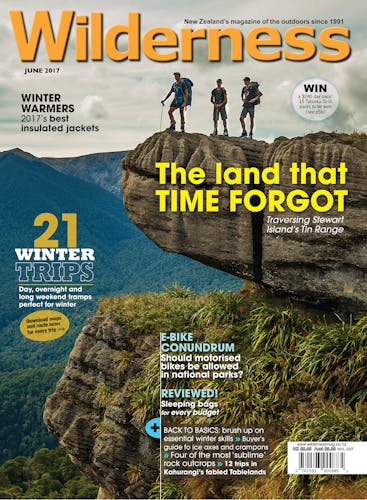Some good cheer for DOC at last: it has finally been given a funding boost, and a substantial one at that.
On the surface, the $76 million DOC has been promised in the 2017 budget looks great: tracks and infrastructure will be enhanced to spread the load of tourists and local trampers. Fantastic: such improvements will make the outdoors more accessible, allowing more people to enjoy a wider variety of tramping and walking experiences. Hopefully some of this spend will be slated for the upper North Island, which lacks opportunities for weekend hut trips for the approximately two million people who live there.
There is also talk of creating two new Great Walks and a series of Great Short Walks and Great Day Walks. I’m less enthusiastic about this – what looked like a boost for DOC, suddenly has the appearance of a top-up of Tourism NZ’s marketing budget. Of particular concern is the intimation private partners may be involved in the funding, or running, of the new Great Walks. Perhaps this will see a situation similar to the guided walking options on the Routeburn and Milford tracks.
But it’s also understandable that the focus be on tourism at this time: the pressure put on DOC facilities by an influx of overseas visitors has been extreme.
Many will welcome differential pricing on the Great Walks, so international visitors pay more than New Zealanders. This is something the Federated Mountain Clubs has opposed because it creates ‘classes’ in the outdoors, a traditionally egalitarian place where everyone is equal regardless of background. I have sympathy for this view, but allowing privately-run accommodation and guided walks on existing Great Walks means that horse has already bolted.
But let’s not brow beat too much. This $76m is overdue and welcome. The money will help address serious concerns Wilderness readers have about such issues as overcrowding and managing toilet waste in particular. But let’s also not forget DOC needs more, and consistent, investment if it is to properly manage the conservation estate. Short term funding boosts are well and good, but an overall annual budget increase and strategy to maintain it year after year is still needed if DOC is to help achieve a Predator Free New Zealand by 2050, halt species decline, prevent the further spread of wilding pines and provide the variety of infrastructure – front country and, importantly, backcountry – to help New Zealanders get outside and enjoy the conservation estate.








